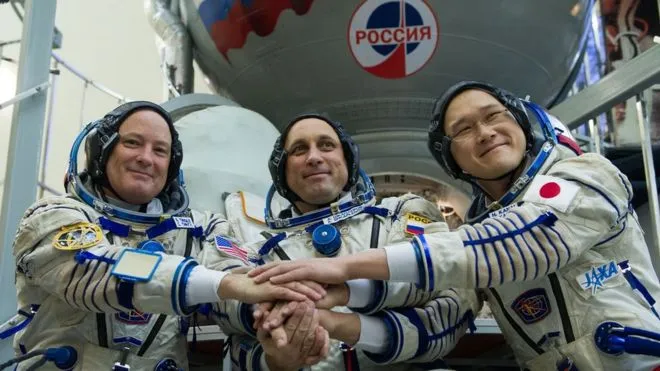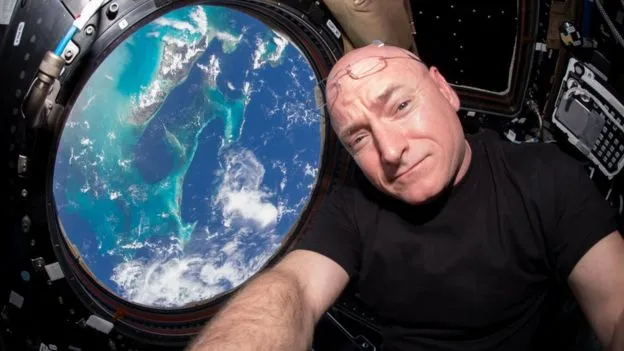
Japanese astronaut Norchigi Kanai is heading the news headlines this week after he announced that he had grown 9 centimeters tall on the International Space Station in three weeks.
He then admitted that he had misjudged, and that the increase was only two centimeters, but that height changes were normal for astronauts who spent time in space.
Space travel is very dangerous, as is the impact of a period away from gravity on the human body, as many astronauts have discovered after returning to earth.
The lack of gravity of the earth leads to an extension of the vertebral column in turn to slight changes in length, but studies have shown that once the astronaut returns to Earth, the length goes back to normal.
Trump asks NASA to resume sending astronauts to the moon
An Italian astronaut longs to taste pizza
What happens during a whole year's journey into space?
Astronauts normally go to the International Space Station for up to six months, but Scott Kelly was able to write his name in history in 2016 after completing a 340-day trip with Russian astronaut Mikhail Kornenko.

The aim of the trip was to study the effect of weightlessness, radiation and isolation on the human body during a long period of time in space.
Kelly gave the opportunity to conduct a study on the long-term side effects of space flights on the body, while his twin brother stayed at home for a comparative study later.
"Most health problems have no symptoms, and you can not feel your lump," Scott Kelly told the BBC.
Will we have "genetically modified" astronauts in the future?
Photos: Best Space Photographer in 2017

After returning to Earth, Kelly was forced to make a thorough examination of his body, since long-term space stays made him feel a large list of symptoms.
"I was suffering from pain, stiffness, bone and muscle pain, swelling and increased pressure in the skull," he explained.
He also suffered from some skin symptoms such as itching and chills as well as feeling nausea and dizziness after returning to the Earth's atmosphere again.
How do you determine the direction of prayer kiss in space?
"No one has warned us of anything, but as you know part of the astronaut's work," he said.
NASA said Kelly's trip was a very important step in reducing the biochemical risk of spaceflight, helping future trips by astronauts to Mars or planets beyond.
Each trip to Mars takes about 30 months, much longer than the maximum human space has so far.
Thank you for reading this, and i hope you enjoyed it.
